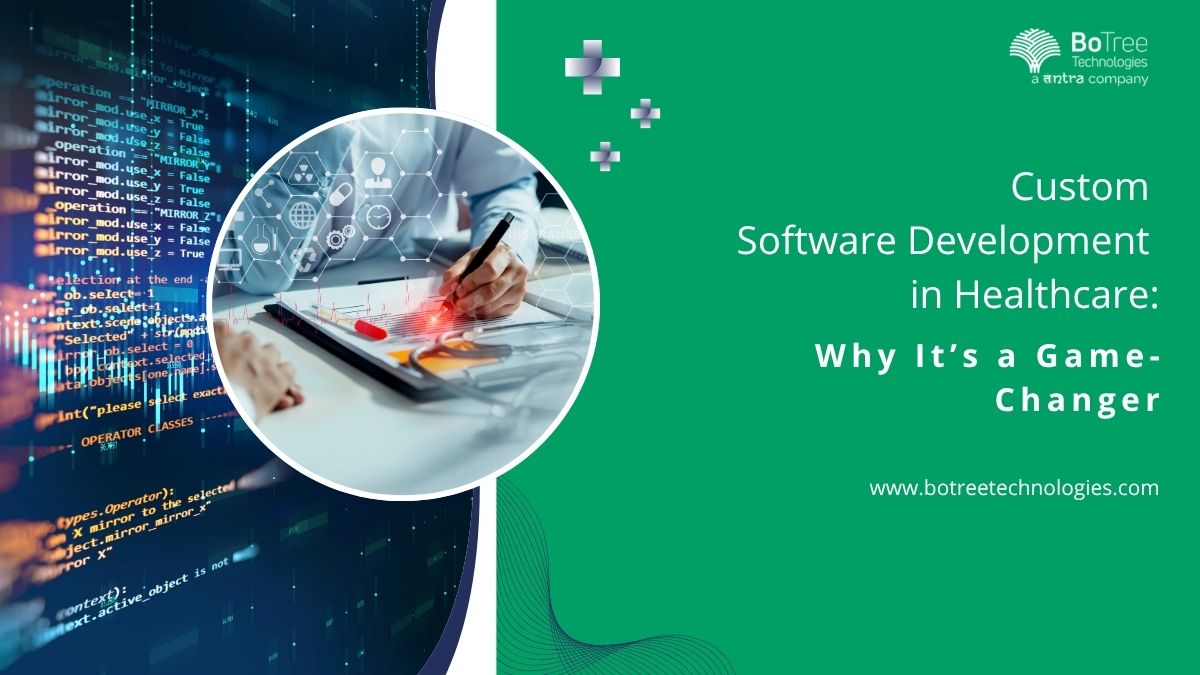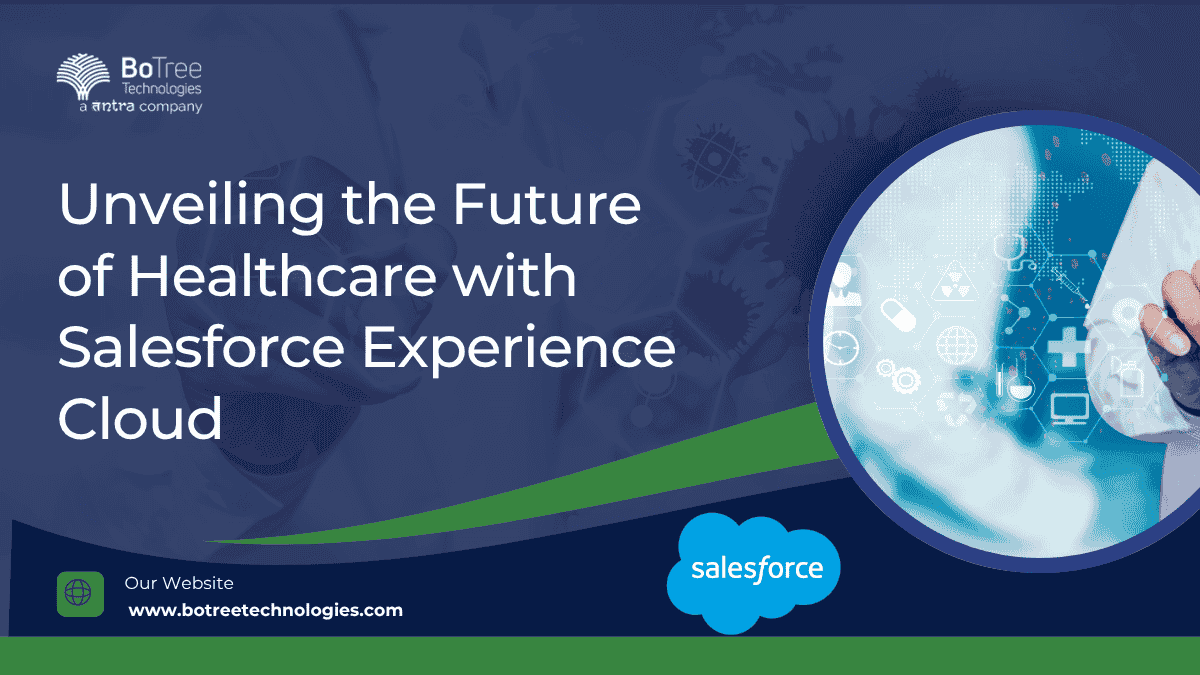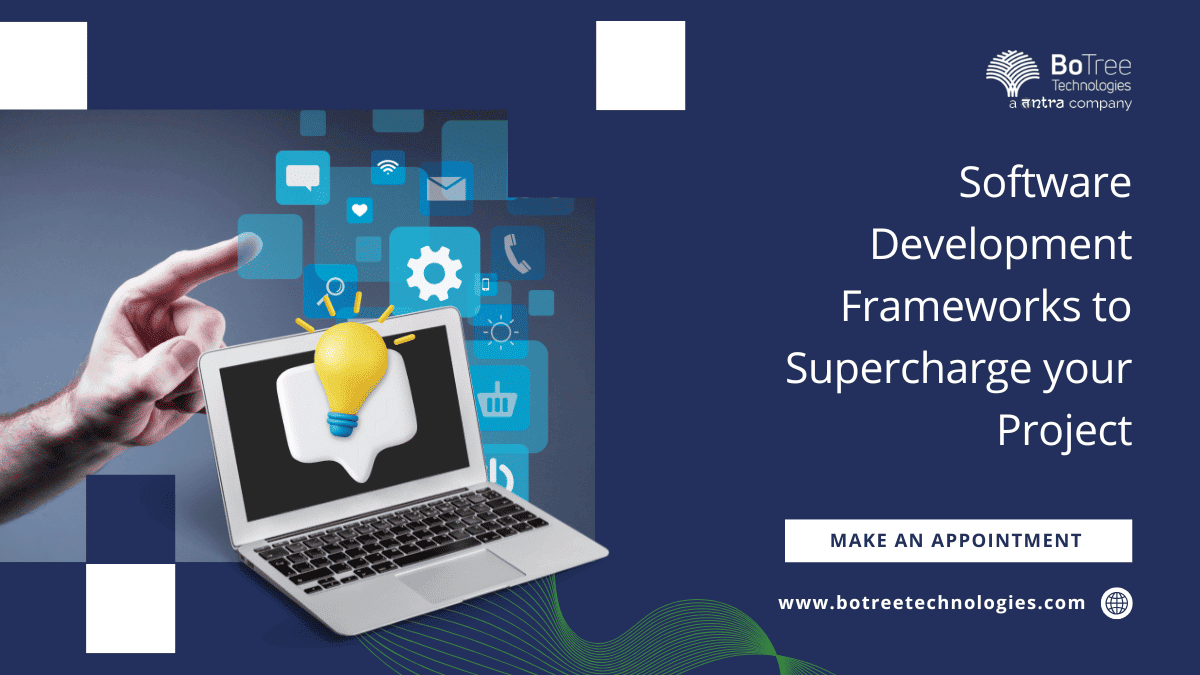
Custom Software Development in Healthcare: Why It’s a Game-Changer
Custom software development in healthcare delivers HIPAA-compliant EHR/EMR systems, telemedicine platforms, patient management, and AI-powered analytics tailored to your workflows. Partnering with a healthcare software development company ensures secure data management, interoperable APIs, and streamlined billing. Phased deployments, comprehensive training, and continuous optimization drive rapid adoption and measurable ROI. Embracing predictive insights and cloud-native architectures positions your organization for sustainable growth and enhanced patient engagement, making custom healthcare software development a transformative force in delivering efficient, compliant, and patient-centric care. Continue reading to learn more.
Delivering the patient-centered care of today means more than just having competent clinicians and modern medical devices. It depends on digital tools that will fit your workflows, secure sensitive data, and generate measurable outcomes. Custom software development in healthcare carries strong importance here. By developing systems that work for your organization instead of forcing your teams into a one-size-fits-all platform, you will achieve efficiency, flexibility, and better patient experiences. Below you will find a breakdown of how custom healthcare software solutions transform day-to-day operations, provide compliance avenues, and grant you sustainability toward growth.
Why Custom Software Development in Healthcare Matters
When looking to invest in custom software development in healthcare, you get applications developed around your very own set of challenges and scenarios. Off-the-shelf systems are typically missing key features or built-in integration with other tools, resulting in lots of workarounds that create manual steps in the process, or in other cases provide holes and gaps in the security around data access. With custom development, you ensure that the software is following clinical protocols as well as IT infrastructure, standards, and overall organizational goals.
Imagine a network of clinics of medium size that solved their bottleneck in appointments through commissioning patient management software tailor-made for their triage model. What happened? Their average waiting times dropped by 25%, half a year after the installation, while patient satisfaction scores went up by 15 points. The impact of this improvement was strengthened by less overtime for staff and in releasing nurses for direct patient care.
Across the software development in healthcare industry, interoperability has risen to the top of every CIO’s list. Custom solutions let you embed HL7 and FHIR APIs, connect electronic health record modules, and maintain detailed audit logs. You can add features – like mobile check-in or AI-driven decision support – on your own timeline. This agility turns technology from a roadblock into a growth driver.
Tailored Healthcare Software Solutions for Modern Challenges
Your organization faces a unique mix of compliance, security, and usability demands. That’s where healthcare IT solutions shine. Customized platforms address pain points across operations, clinical care, and administrative workflows.
- Security & Compliance
Healthcare is known for one of the most sensitive domains for data. You need to have HIPAA compliant software to encrypt data at rest and in motion, log user activity, and notify those involved in the event of a breach. Custom-made development means you will be building these safeguards into the system from the start, thus mitigating legal and financial exposure. - Streamlined Clinical Workflows
Generic EHRs tend to make clinicians click through fields they ought not to or enter data twice. EHR/EMR software development for your specialties will, thus, accelerate charting, automate order sets, and allow integration of lab results in real-time: for instance, a cardiology practice introduced templated echo reports and cut the documentation time by 40%. - Modern Patient Engagement
Patients today expect more than voice mail reminders. Through telemedicine software development and healthcare app development, you can offer video visits, secure messaging, and online bill pay. Embedding these features in your own brand environment drives loyalty and reduces no-show rates by up to 30%. - Data-Driven Operations
Proper management of healthcare data can combine clinical, financial, and operational data into one set of dashboards. Custom reports will allow administrators to keep an eye on bed occupancy, staffing ratio, and supply usage in real-time. Alerts will be sent out whenever necessary (e.g., if ICU capacity exceeds 85%) so resources can be redeployed before anyone even notices.
Key Components of Medical Software Development
Developing impactful applications requires clarity on use cases and technical architecture. Here are essential building blocks in medical software development:
- Clinical Software Development
- Specialty-specific charting templates that fit neurology, oncology, or primary care.
- Electronic order entry with built-in decision support and drug interaction checks.
- Specialty-specific charting templates that fit neurology, oncology, or primary care.
- Telemedicine Software Development
- Secure, scalable video conferencing with HIPAA-grade encryption.
- Virtual waiting rooms, integrated e-prescribing, and visit summaries.
- Secure, scalable video conferencing with HIPAA-grade encryption.
- Healthcare App Development
- Patient-facing mobile apps for appointment booking, result viewing, and secure chat.
- Wearable integrations – fit-bit, Apple Watch – that feed vital signs directly into the EHR.
- Patient-facing mobile apps for appointment booking, result viewing, and secure chat.
- Medical Billing Software
- Automated coding engines that reduce denials and speed reimbursements.
- Eligibility verification tools that check coverage in real time to prevent claim errors.
- Automated coding engines that reduce denials and speed reimbursements.
- Interoperability & APIs
- FHIR and HL7 connectors for labs, imaging centers, and health information exchanges.
- Custom bridges to pharmacy networks and public health registries.
- FHIR and HL7 connectors for labs, imaging centers, and health information exchanges.
- Clinical Decision Support
- AI-powered alerts that flag abnormal labs or high-risk medication orders.
- Predictive readmission models for targeted care transitions.
- AI-powered alerts that flag abnormal labs or high-risk medication orders.
Bringing these elements together ensures your custom healthcare applications work as a cohesive ecosystem, rather than a patchwork of point solutions.
Choosing the Right Healthcare Software Development Company
Selecting a vendor for healthcare software development services requires more than cost comparisons. Look for a partner who marries healthcare domain expertise with disciplined delivery:
- Deep Industry Experience
With the best healthcare software development company, one will find case studies from hospitals, specialty clinics, and payors. You can ask for instances of healthcare software development that actually resulted in ROI, whether that be due to less charting time, better patient engagement, or improvements in the revenue cycle. - Security & Compliance Process
They should demonstrate proven experience in prior HIPAA compliant software development and penetration testing. They should be able to furnish you with documentation on risk assessments, vulnerability scans, and incident response procedures. - Agile Collaboration
You ought to be ensured of transparency and periodic demonstrations. It keeps you in control if it is an agile approach-two-week sprints with demos. Also, this avoids scope creep, as you keep adjusting priorities as software is working within each sprint. - Support & Maintenance
Healthcare never sleeps. Confirm they offer 24/7 support, proactive patching, and clear SLAs. Downtime or slow fixes can interrupt patient care and erode clinician trust. - Scalable Architecture
Whether you start with custom healthcare software development for patient portals or clinical software development for ICU workflows, the codebase must support new modules. Microservices or cloud-native designs let you add telemedicine, AI analytics, or billing engines down the line – without a major rewrite.
By choosing a partner with robust processes and healthcare domain mastery, you mitigate risk and accelerate time to value.
Future Trends: AI in Healthcare Software and Beyond
The software development in healthcare industry is evolving rapidly. You’ll want to stay ahead by embracing these three trends:
- AI in Healthcare Software
Machine learning can detect sepsis risks, optimize imaging protocols, or triage incoming patient messages. Embedded AI tools help clinicians focus on cases that truly need human judgment. Early adopters report diagnostic accuracy improvements of up to 15% and time savings of 20 minutes per chart. - Advanced Analytics & Predictive Insights
Where dashboards stop, predictive analytics enter the realm to envision staffing demand, bed occupancy, and supply shortages. This means that you would be alerted two weeks in advance if blood banks dip below safe levels. With this information, you could go ahead and schedule some donor drives. - Cloud-Native Healthcare IT Solutions
Switching over from on-premises servers to a cloud platform eligible for HIPAA would give you elastic scaling, a high-powered disaster recovery, and faster API integrations. The cloud architecture would then make connections to AI services, IoT devices, and public health data feeds simpler.
By piloting these innovations – say, a small-scale AI readmission model for heart failure – you can validate clinical and financial benefits before rolling out enterprise-wide.
Implementing Custom Healthcare Software Development Services Successfully
Even the best design fails without a strong implementation plan. Here’s a step-by-step guide for your custom healthcare software development rollout:
- Stakeholder Alignment
Engage clinicians, nurses, IT, and billing early. Map out key workflows – from admission to discharge – and capture pain points. When everyone has input, you increase buy-in and reduce resistance. - Phased Deployment
Divide your project into logical phases. Start with core modules – like EHR/EMR software development and patient management systems. Then add ancillary features: telemedicine, AI analytics, or mobile apps. Phases limit disruption and let you demonstrate quick wins. - Comprehensive Training & Change Management
Schedule hands-on workshops, create quick-reference guides, and designate “super users.” A month before go-live, start shadow days where clinicians practice in the new system. Effective training can cut post-launch support tickets by 50%. - Data Migration & Validation
Extract data from legacy systems and run parallel workflows until you validate accuracy. For example, verify that lab results in the new database match the old one down to decimal points. This diligence prevents charting errors and builds confidence. - Continuous Monitoring & Optimization
After launch, track KPIs such as user satisfaction, documentation time, and claim denial rates. Hold monthly review meetings with your healthcare software development company to plan targeted enhancements. This iterative approach ensures your custom healthcare software development investment continues to pay dividends. - Governance & Support Structure
Establish an internal steering committee that meets quarterly. They review change requests, prioritize feature roadmaps, and ensure alignment with organizational strategy. Combined with vendor-provided 24/7 support, this governance model keeps your software secure and evolving.
When you treat your software deployment as a clinical transformation – rather than an IT project – you maximize value and achieve sustainable improvements.
Conclusion
In a world where care delivery hinges on digital experiences, custom software development in healthcare isn’t optional – it’s essential. When you work with an experienced healthcare software development company to build HIPAA-compliant modules such as EHR/EMR software development and telemedicine software development and harness innovations like AI in healthcare software, you give your organization a good fighting edge in leadership.
Now let us build solutions that serve clinicians, administrators, and patients because when technology resonates with your vision, great care follows naturally.
Schedule a call with us today!
FAQs
What exactly is custom software development in healthcare?
Custom healthcare software development is creating applications—such as EHR/EMR systems, telemedicine solutions, or patient management software—from scratch to align with your organization’s specific workflows, security needs, and growth goals.
How does custom healthcare software improve patient care?
By pairing features with your clinical workflows—streamlining charting, incorporating real-time lab results, and providing secure patient portals—custom solutions minimize administrative workload, reduce errors, and release clinicians to devote more time to direct patient interaction.
Is HIPAA compliant software guaranteed with a custom approach?
When you work with a proven healthcare software development firm, HIPAA compliance is integrated from day one with end-to-end encryption, user-access logging, and automated breach alerts, reducing legal and financial exposure.
How long does it take to implement a custom solution?
Standard timelines differ per scope but in most projects, core modules of the form e.g., development of EHR/EMR or medical billing software are delivered in 4–6 months. Phased deployments allow you to begin gaining benefits sooner as advanced features subsequently arrive in succeeding sprints.
What should I look for in a healthcare software development partner?
Select a vendor that has demonstrated domain experience, nimble delivery methodologies, and support 24/7. Check their record of HIPAA compliant software, interoperability (HL7/FHIR), and telemedicine and AI-powered healthcare IT solution deployments.




